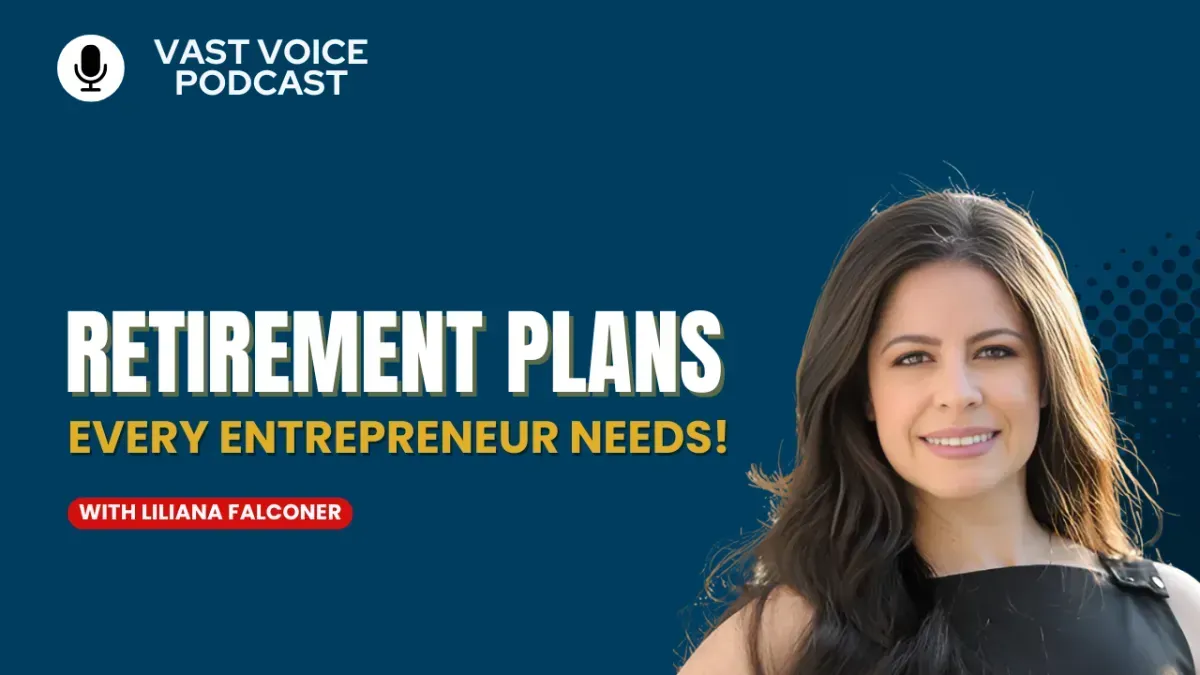
Retirement Plans Every Entrepreneur Needs!
Entrepreneurship is often about freedom—the freedom to create, innovate, and take control of your financial destiny. Yet with that freedom comes responsibility, especially when it comes to planning for retirement. Unlike traditional employees who have HR departments to set up retirement accounts, entrepreneurs must take the initiative themselves. The irony is that while business owners pour everything into building their companies, many neglect their personal financial futures. The truth? Your business may be thriving today, but without a plan, the future can be uncertain.
Retirement planning isn’t just about “someday.” It’s about creating options—options to work because you want to, not because you have to. Options to step away for travel, passion projects, or simply more time with family. And the best part? The right retirement plan not only builds future wealth but also reduces your tax bill today.
Why Entrepreneurs Overlook Retirement 🌟
It’s easy to see why retirement planning takes a back seat for business owners. You’re wearing multiple hats—CEO, marketer, CFO, and often even janitor. Every extra dollar is tempting to reinvest in growth, inventory, or marketing campaigns. Many entrepreneurs think: “My business is my retirement plan.”
But businesses come with risks. Market disruptions, new competitors, shifts in consumer behavior, or even personal health issues can derail a company’s trajectory. Without a safety net, entrepreneurs may find themselves financially vulnerable in later years. That’s why treating retirement planning as a business strategy is essential.
Pre-Tax vs. Post-Tax Contributions 💵
One of the first decisions is whether to contribute pre-tax or post-tax. Each has unique advantages:
Pre-tax contributions: Retirement plans like traditional IRAs or Solo 401(k)s allow you to reduce your taxable income now. For example, if you earn $100,000 and contribute $20,000 pre-tax, you’re only taxed on $80,000. This immediate benefit can free up cash for reinvestment.
Post-tax contributions: Plans like Roth IRAs don’t offer upfront tax breaks, but withdrawals in retirement are completely tax-free. Imagine building a portfolio that you can access later without worrying about tax bills.
The smartest entrepreneurs often blend both. This mix creates flexibility: pre-tax plans lower today’s taxes, while Roth-style plans shield tomorrow’s gains.
Stacking Retirement Plans for Maximum Savings 📈
Many entrepreneurs stop at one plan—often a traditional IRA—but there are far more powerful options. Here’s how you can layer strategies:
Solo 401(k): Ideal for solopreneurs or business owners whose only employee is a spouse. It offers high contribution limits (up to $69,000 in 2024 with catch-up contributions), letting you save aggressively.
SEP IRA: Simplifies saving for entrepreneurs with variable income and can be a good fit for small businesses with employees.
Defined Benefit Plans: These resemble pensions and allow very high contributions—sometimes hundreds of thousands annually. They’re best suited for high-income entrepreneurs looking to turbocharge retirement savings.
The secret is understanding contribution limits, cash flow, and tax strategies, then layering the right combination to accelerate long-term wealth.
Alternative Investments Through Self-Directed Plans 🔑
Most people think retirement accounts mean choosing between stocks, bonds, and mutual funds. Entrepreneurs, however, often prefer more control. That’s where self-directed IRAs and 401(k)s come in.
These accounts allow you to invest in alternative assets such as:
Real estate (residential, commercial, or raw land)
Private businesses or startups
Precious metals
Private lending
For entrepreneurs, this can be powerful—you can invest in what you know best while keeping the tax advantages of retirement accounts. Imagine using your industry expertise not just for your business, but also for your retirement nest egg.
The Role of Tax Strategy in Retirement 🌐
Retirement planning isn’t just about saving—it’s about saving smart. Qualified retirement plans are among the most tax-efficient vehicles available to entrepreneurs. Contributions reduce taxable income, and growth compounds tax-deferred. Plus, certain plans can help you manage estate taxes or business succession planning.
For example, pairing a defined benefit plan with a cash balance plan may allow you to shelter significant income, which not only reduces taxes today but creates a predictable income stream tomorrow.
This is why working with advisors who understand both taxes and retirement planning is crucial. The right guidance can turn your retirement plan into a dual engine: lowering your tax bill now while securing your financial independence later.
Avoiding Common Entrepreneur Retirement Mistakes 🚫
Relying solely on the business – Betting your entire future on one asset (your company) is risky.
Starting too late – Compounding is powerful; the earlier you start, the more your money works for you.
Not diversifying – Even if you’re confident in your business or industry, diversify retirement investments to manage risk.
Ignoring liquidity – Retirement isn’t just about net worth—it’s about accessible cash flow.
The Bottom Line: Plan Today for Freedom Tomorrow 🌅
At the end of the day, retirement planning for entrepreneurs isn’t about leaving the game early—it’s about creating freedom and security. It’s about designing a life where you can choose what’s next, whether that’s scaling your company, selling it, or passing it on.
By setting up the right retirement plans—whether it’s a Solo 401(k), SEP IRA, or even a defined benefit plan—you can reduce taxes, build wealth, and protect your future. Add in self-directed options and strategic guidance, and you’re not just planning for retirement—you’re building financial independence.
👉 The takeaway? Don’t wait. Start planning now. Even small contributions grow into significant freedom later. Just like in business, consistency and strategy make all the difference.
Book Your Consultation Call Now!
